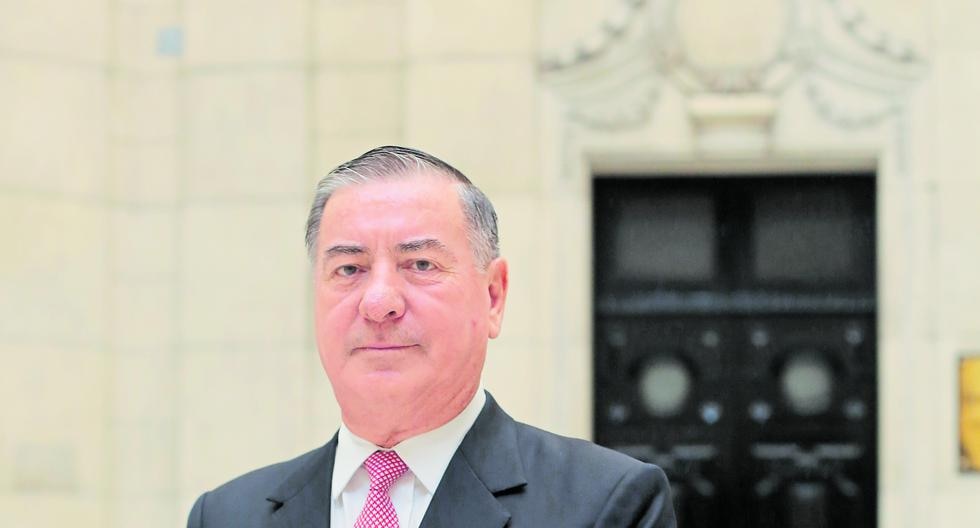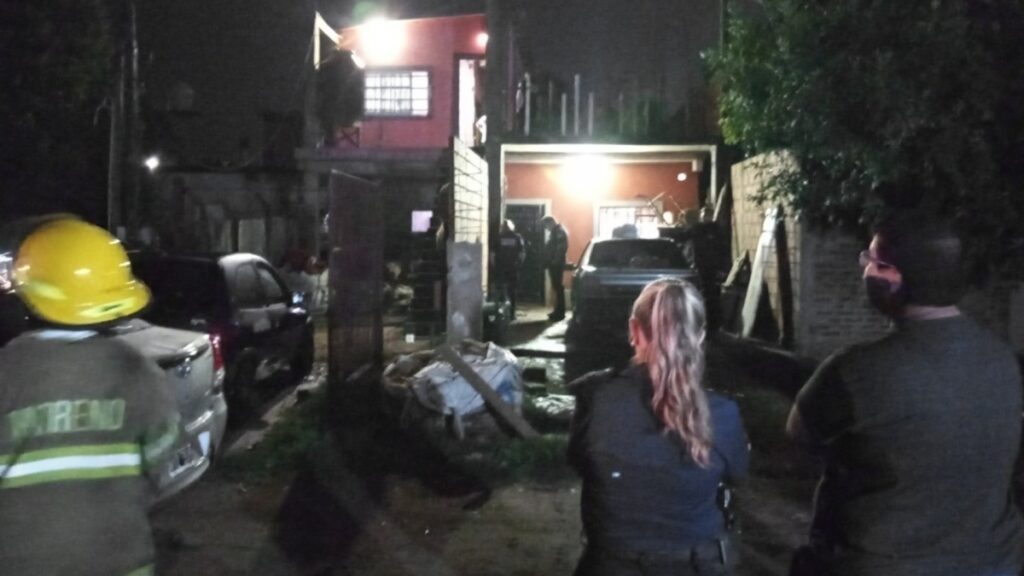Bluntly and quite critical, the former prime minister Oscar Valdes talks about the lack of firmness and the soft attitude that, according to what he says, the government of Dina Boluarte in these few 46 days. In addition, he claims political support for law enforcement.
It has been another week of social upheaval. What is your assessment of the march called Toma de Lima and the government’s response?
I believe that the time elapsed, since the strikes, roadblocks, etc. began, leaves a very negative balance to the adaptation of the government with marches and counter-marches. There has not been a firm attitude to face a process that is creating greater problems every day, not only for the government, but also for the country’s economy and, of course, for the economy of all Peruvians. The government has not been able to apply adequate intelligence nor has it been firm enough to defend and enforce the declared states of emergency. And, on the other hand, there is the soft and somewhat ignorant attitude of the Ministers of the Interior and Defense. We do not see a government that has the right measures to deal with this crisis, it would give the impression that it is a government that only wants to play dead or wants to float and not solve the underlying problems.
How much longer can he ‘play dead’ in the face of an escalation of violence that could continue?
Time is getting shorter and every day the resignation of President Dina Boluarte is more likely, and I say this because from the south we feel that there has been an attitude totally focused on Lima and the rest of the country has been forgotten. A whole display to defend Lima, in quotes, because defending it does not mean putting the policemen as if they were stubborn dolls so that they can grab them with sticks as if they were made of rubber. They have had to distinguish a while ago that this is not a capricious process of wanting to remove Mrs. Boluarte (…). When we see that they want to seize airports in a coordinated manner, that they have the same message at the national level, that they want to paralyze the country’s economy, I believe that things must be taken seriously and not have soft attitudes and mourn the dead, because here what has to be done are summary investigations; we should already have results. What happened to the 50 dead? Were they really the action of the Police or of those who entered through the south from Bolivia? It cannot be that 20,000 or 30,000 who protest at the national level are above the will of 33 million Peruvians.
You maintain that the government would not have long to live, but is the resignation of Dina Boluarte the way out of this crisis?
Mrs. Boluarte is not doing her role of leading the nation as she should. What good is it for us to have her for 18 more months if this is going to continue? We have to look for things to calm down, for the State to be well reorganized, for the Police to act with the necessary political support, for these rioters to be captured and put in safe custody and we can carry out an election process this year (… ). There is disagreement at the country level with Boluarte continuing, and we think that she should step aside, José Williams assume the presidency and call elections. For that, Congress will also have to make short, quick reforms, right now.
However, both the president and her ministers have indicated that she will not resign. What are the specific measures that should be adopted to give peace of mind to the population?
A large part of the inhabitants, and I include myself, thought that Boluarte could be the one to provide some stability, especially when an early election came out of it, of his own accord. The problem is that they don’t know what to do with the country, they don’t know how to impose order and, on the other hand, they have been frightened by the deaths that have occurred; We have all been scared, but they are the ones running the country and they have to explain themselves to the people. If she intends to go on and not give up she should correct those things. It is not the fact of saying: “I do not want more deaths” and that the country continues in disorder and chaos. Now, if she is not going to remedy this, the most typical thing for her would be (to say): “Look, I can’t with the country, I’m going to step aside.” We Peruvians want progress, peace, order, and we do not want deaths, but they are the ones responsible for running the country and they will have to assume their responsibility.
Was it a mistake to initially take apartments away from law enforcement? There is talk of a containment strategy; is it the most correct?
No. In no way is containment going to solve the problem because here there is not only popular discontent but also political demands; there is no discontent for education, for health, all the platforms are oriented to the resignation of Boluarte, closure of Congress, call for elections. There are people who want to come to power. Let’s not forget that Shining Path, through Movadef, wants to reach the government, and all these acts that already configure a subversive situation – and of which the government does not want to be aware – are there. What the government must do is give the police the tools that the Constitution gives them, which is that they can use their weapons when they are affected or their lives are in danger. That does not mean that he gives them absolute powers and that the Police go out to kill people; no, they are professionals, and they have to do their job.
How much does the Movadef factor weigh in these manifestations? The government says that it has identified those who lead these mobilizations, but we do not see further arrests or concrete measures.
There is no effective action on these people who are already fully identified. At the time of subversion, the Shining Path allied itself with drug trafficking, that continues, but now it has a new ally, which is illegal mining. The government, with a well-functioning intelligence system, must detect these threats, but if Boluarte appoints a qualified army colonel to the National Intelligence Directorate (DINI) and, through an interview in which she makes a mistake, take it out, what stability are we giving to such an important organ that produces Strategic Intelligence?
In this context, how do you see Parliament’s position? There the congressmen are not convinced of this mandate cut, some do not even want the general elections to be brought forward to April 2024…
Congress is largely to blame for all of this. Instead of reforming the electoral process, the first thing he is doing is looking at re-election and bicamerality; that is his great concern. We know how important the re-election of congressmen can be to have a more experienced Congress, and also bicamerality, so that there is a second instance in Parliament, so that the laws are better, but this is not the time, it is inopportune. We have had a referendum in which 90% of the population voted against bicamerality and 80% said no to re-election. So, how do they think that they are going to put two things on the horse that should not be given? (…) And these gentlemen are thinking of extending their mandate until July 2024, and some even that the election should be until 2026. I think they are digging their own grave and this is going to get worse; Instead of mitigating the problem the country is going through, they are contributing to its deepening.
What awaits Peru?
Peru is a beautiful country, with many resources. Today we have the minerals at the prices that we wanted so much two or three years ago. I am sure that Peru will pass these potholes. And to those of us who are businessmen, I also say: let’s continue investing in our country, let’s not be afraid and let’s do our part as businessmen so that the country continues to move forward and create jobs.
Keep in mind
Óscar Valdés Dancuart is a businessman and soldier. He was president of the Council of Ministers and head of the Interior portfolio during the five-year period of Ollanta Humala.
“Congress has to modify article 117 of the Constitution, make the filters so that they do not reach Parliament on paper and see that there are more possibilities for new parties to participate,” he maintains.
RECOMMENDED VIDEOS
:quality(75)/cdn.jwplayer.com/v2/media/Hk3Dcd2U/poster.jpg)
















